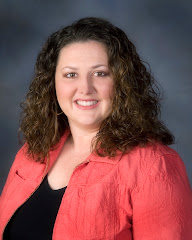James Frankowiak, APR, a member of the DP/PC chapter, lead the discussion. He suggested a common sense approach to training spokespeople and offered a list of questions a public relations professional should ask themselves prior to beginning the training. Those questions include:
- Have I established appropriate media relationships?
- Do my media contacts have current information about my organization?
- Do we have policies and procedures in place for effectively handling media inquiries?
- Does senior leadership understand and agree with why we are engaging in spokespersonship?
- Who is the primary spokesperson? Back-up?
Frankowiak pointed out that the easy part is the training itself- the difficult part is making sure the spokesperson actually is ready to face the media. He said the most effective training is done on camera. When people are able to watch themselves on tape, they are better able to view how their clothing, mannerisms, facial expressions and body language translate on camera.
Spokespeople are more successful if they are able to get on camera three to five times during a training session, Frankowiak has learned. For that reason, it's best to keep training groups small enough to make that camera time possible.
The essence of media training involves knowing the audience being reached, establishing several communications objectives for every spokesperson opportunity and knowing the media person/gatekeeper for that opportunity, Frankowiak said.
Spokesperson training also involves preparing for the questions, situations and scenarios you hope never will occur. Be prepared to answer the toughest conceivable questions, he said. Finally, don't fall into the trap of using industry-specific jargon and lingo on camera. Speak on a topic as though the general public isn't familiar with it- they often aren't.
Spokesperson training also should teach people how to deal with extraordinary situations, Frankowiak said, such as the reporter with an "agenda," rapid-fire questioning, misinformation, or the reporter who simply doesn't have a clue. A well-trained spokesperson should be able to hold up under any of those circumstances.
Afterthoughts
As is often the case in informal brainstorming sessions such as this, as much good information came from the discussions during and after the session as the actual training. I like nothing more than getting into a room of PR professionals with much more experience than me. Often, they have so many great, real-world examples of training in action, and Tuesday's group didn't disappoint.
Lesley Corban of the U.S. Postal Service suggested that during training, those participating switch roles so that sometimes they are the person being interviewed and sometimes they are the interviewer. Being on both sides of the coin can help each understand where the other is coming from.
Jennifer Denham of the United Way of Central Florida gave examples of how being forthright with information to the media at all times can translate into future coverage opportunities for "good news" items, especially when reporters are desperate for something to cover. This happens more often than you might imagine, especially in smaller media markets.
Suleima Salgado of the Polk County Health Department gave an amazing example of how she recently dealt with a television reporter who kept trying to lead her into making a comment she didn't want to make. Salgado stuck to her guns and repeatedly returned to her communications objective during the interview. After becoming frustrated and angry, the reporter finally moved on.
Among the most important information I got from the training were these key points:
- A well-trained spokesperson should be comfortable, believable and sound honest on camera.
- Never let a spokesperson do an interview alone. A PR professional always should be waiting on the sideline, in the event the interview takes an unanticipated turn. The PR professional can work to ensure the interviewer stays on topic.
- Don't be afraid of dead air. Answer your question and then STOP TALKING.
- If you don't know the answer to a question, say so.
- Anticipate the tough questions you don't want to be asked.


1 comment:
This comment came from James:
It is sometimes valuable to have an outsider review spokesperson training materials and participate in the training. An objective, third part review of materials can be helpful. Taking your boss or other members of your senior management team to task during training may not be comfortable for some and it may also not be the best in terms of your career path with the organization. An outsider can handle this and not jeopardize his or her career.
Post a Comment